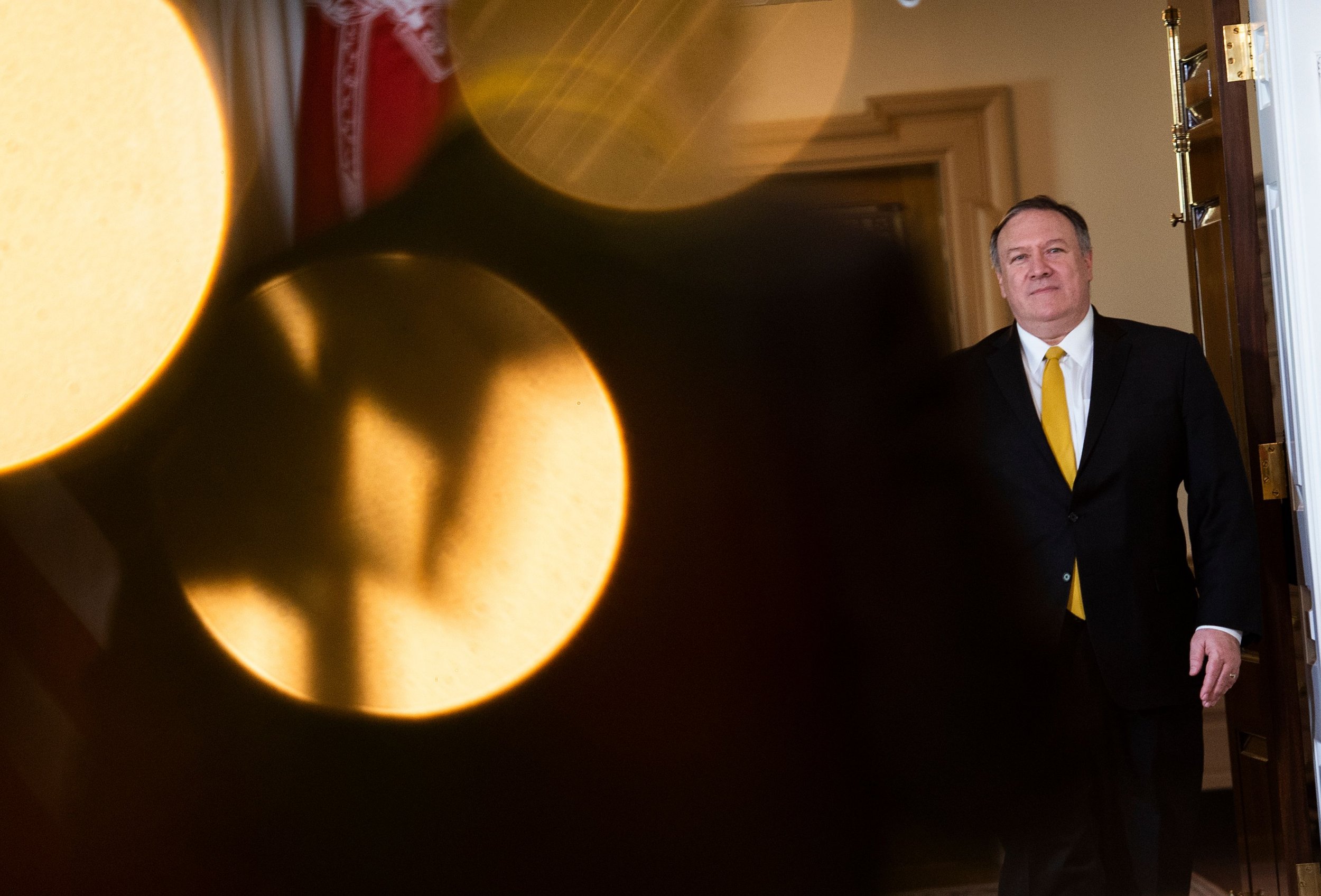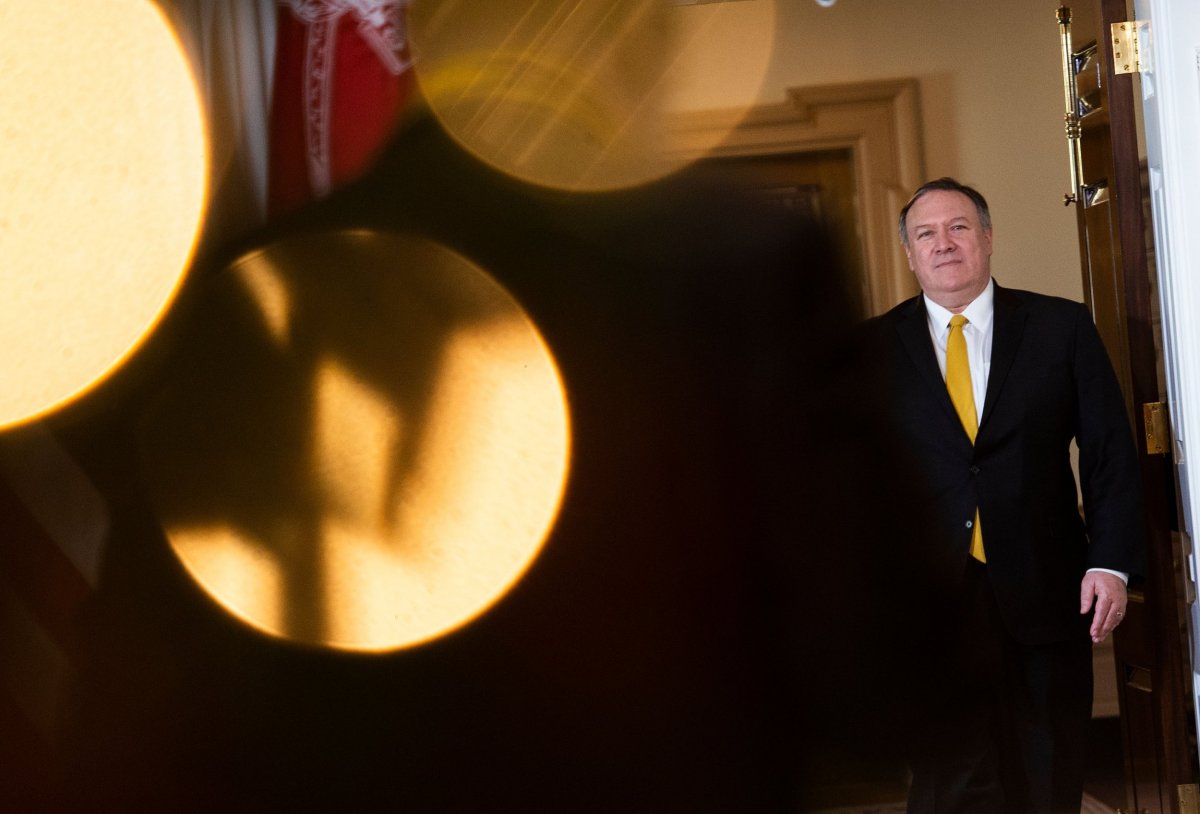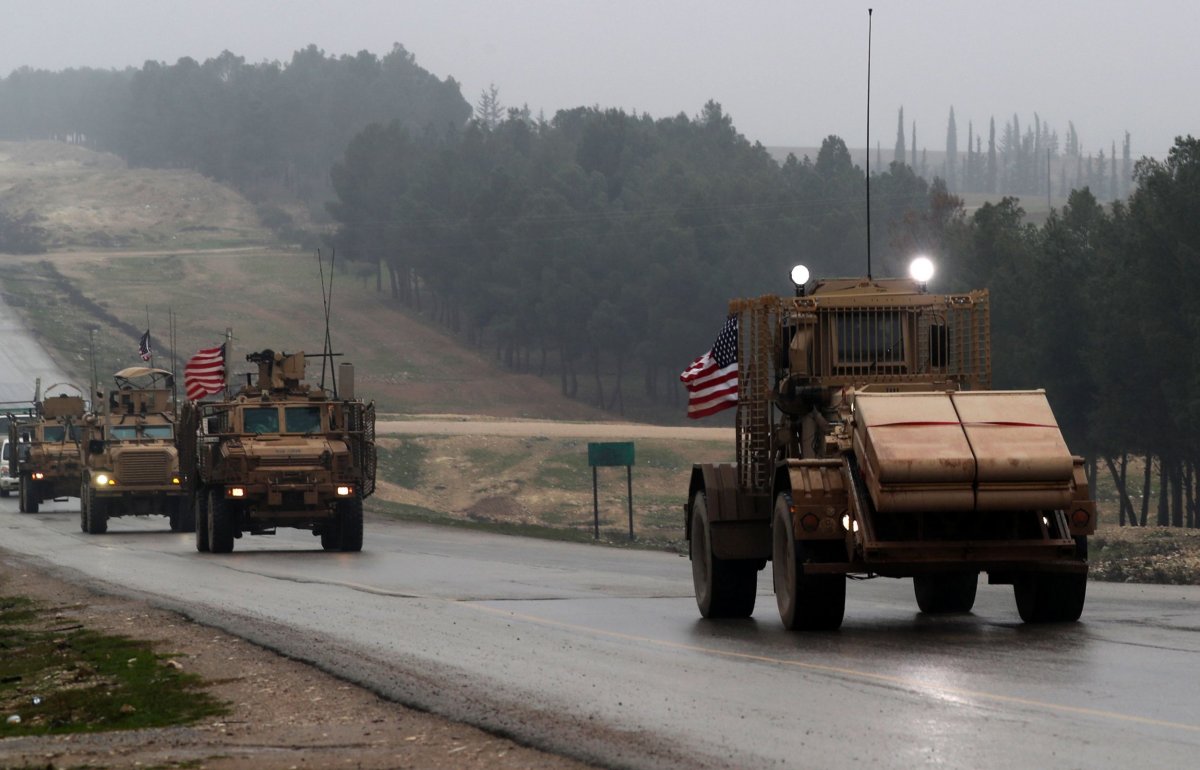
The top U.S. diplomat has expressed the difficulties of his position in the wake of a government shutdown and recent top-level resignations as he set off for a tour of the Middle East.
In an interview with CNBC News on Monday, Secretary of State Mike Pompeo defended President Donald Trump's ongoing standoff with Democrats that have refused to support the Republican leader's $5.6 billion plans to fund a border wall, a spat that has seen a partial shuttering of federal services for 16 days. Echoing President Donald Trump's argument that the measure was necessary to ensure border security, Pompeo said that "the administration has an important goal there that the president's trying to achieve."
This dispute, however, coupled with a Democratic takeover of the House of Representatives and resignations of senior figures such as Secretary of Defense James Mattis, envoy to the U.S.-led coalition against the Islamist State militant group (ISIS) Brett McGurk and Pentagon chief of staff Kevin Sweeney, have apparently taken their toll.
"Every day is tough. And I expect every day going forward will be difficult as well. It's a complicated world," Pompeo told CNBC. "America is an important player all across the globe. We're doing well. We're performing our mission. And the team here at the State Department is prepared to continue to do that throughout 2019."

Pompeo left Monday for the Middle East, joining White House national security adviser John Bolton. They are visiting regional allies in the fallout of another major move making waves: Trump's decision to withdraw roughly 2,000 troops fighting alongside Kurdish-led allies against ISIS in Syria. Though the jihadis have been largely isolated to a pocket of the country's far east, a U.S. pullout has raised concerns that the militants could stage a comeback.
There is also the fear that forces who might be under Iranian command could extend their control, and of a Turkish offensive against Kurdish fighters. These U.S.-backed Kurds are considered terrorist organizations by Ankara due to alleged links to a three-decade insurgency waged by separatists at home.
Bolton assured Israel of unwavering U.S. support against their shared archfoe Iran during a press conference Sunday in Jerusalem. He arrived Monday in Turkey in hopes of striking a deal to protect Kurdish fighters.
While Bolton had said Sunday that "there are objectives that we want to accomplish that condition the withdrawal," Pompeo said during Monday's interview that the Trump administration was "going to withdraw our 2,000 soldiers from Syria" and that Bolton's job was to communicate U.S. goals to Turkey "in light of this withdrawal." He said that part of his own visit to Jordan, Egypt, Bahrain, the United Arab Emirates, Qatar, Saudi Arabia, Oman and Kuwait would be geared toward strengthening an alliance that included Gulf Arab states and Israel against Iran.
Pompeo told CNBC that he would "absolutely" want to see more support in countering Iran's revolutionary Shiite Muslim activities from partners in Europe, where major powers France, Germany and the United Kingdom have instead joined China and Russia in opting to honor their commitments to a 2015 nuclear deal scrapped by the White House in May. Trump has accused Iran of using sanctions relief to further its regional agenda and develop ballistic missiles, allegations he used to justify his decision to reimpose trade restrictions on Tehran.

While a number of Trump's conservative officials have championed his opposition to growing Iranian influence, they have expressed deep skepticism toward his exit from Syria. The president had long campaigned for ending U.S. military commitment abroad, but Washington and Pentagon officials had moved to expand the anti-ISIS mission in Syria to also include countering Iran and ousting Syrian President Bashar al-Assad, who has survived a West-backed 2011 rebel and jihadi uprising due to his Russian and Iranian backing and has begun to re-establish regional relations.
Just one day after Trump's announcement on December 19, Mattis announced his resignation, followed by McGurk on New Year's Eve and Sweeney over this past weekend. While some politicians such as Republican Senator Rand Paul of Texas and Representative Ro Khanna of California have backed Trump's decision, other senior lawmakers, such as Republican Senator Lindsey Graham, have pressured the commander-in-chief to slow down the departure of U.S. troops.
Pompeo, who was appointed to his position after his predecessor Rex Tillerson was ousted last year, refused to say whether traditional U.S. foes, such as North Korea and Iran, should see the changes in Washington as a sign of weakness. Still, he told NPR last week: "I'm hoping I get to be the Secretary of State for six more years."
Uncommon Knowledge
Newsweek is committed to challenging conventional wisdom and finding connections in the search for common ground.
Newsweek is committed to challenging conventional wisdom and finding connections in the search for common ground.
About the writer
Based in his hometown of Staten Island, New York City, Tom O'Connor is an award-winning Senior Writer of Foreign Policy ... Read more
To read how Newsweek uses AI as a newsroom tool, Click here.








